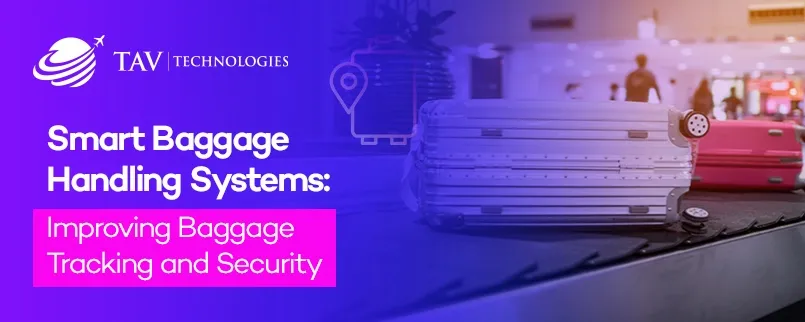
Nov 2024
In a world where travelers expect seamless experiences, airports are constantly looking for ways to improve efficiency and enhance security. One of the most critical aspects of airport operations is baggage handling, a process that has become increasingly sophisticated with the adoption of smart technology. No longer just a logistical challenge, baggage handling is now a vital element of passenger experience and security. In this blog, we’ll explore how smart baggage handling systems are transforming baggage tracking and security in modern airports.
The Need for Advanced Baggage Solutions
As air travel demand continues to rise, airports are handling increasing amounts of luggage. Traditional baggage systems are no longer equipped to handle these volumes efficiently. Issues such as misplaced baggage, delayed deliveries, or compromised security can severely impact the passenger experience. To combat these challenges, airports are turning to smart BHS solutions that leverage automation, IoT, and real-time data analytics to streamline the entire baggage handling process.
Real-Time Baggage Tracking
One of the core benefits of smart baggage handling systems is the ability to provide real-time tracking for both passengers and airport staff. By using technologies like RFID (Radio Frequency Identification) tags and integrated IoT sensors, these systems ensure that each bag is accounted for at every stage of the journey. Passengers can track their luggage from check-in to final delivery, improving confidence and reducing anxiety, particularly for those with tight flight connections.
For airports, real-time tracking also improves operational efficiency. Baggage can be rerouted in case of flight changes, minimizing delays and reducing the chances of lost luggage. Furthermore, airport staff can monitor and address any bottlenecks in the baggage process instantly, ensuring a smoother flow through the system.
Enhancing Security with Automation and AI
Security is a paramount concern in modern airport operations, and smart baggage handling systems play a crucial role in mitigating risks. Automated systems equipped with AI-powered analytics can identify and flag suspicious or improperly packed items in real-time, reducing the need for manual inspections. These systems also integrate with security screening technologies, ensuring that all baggage undergoes thorough screening without slowing down the process.
Additionally, smart systems help airports comply with international security standards while reducing operational costs associated with manual labor. The use of automated sorters and robotic handling systems further enhances security by reducing human contact with sensitive baggage areas.
Reducing Mishandling and Delays
A significant challenge for any airport is the mishandling of luggage, which can lead to delayed or missed flights. Smart baggage systems reduce this risk by automating key processes such as sorting, loading, and tracking. Through advanced algorithms, bags are sorted and loaded with precision, significantly lowering the chances of errors. Especially some solutions like Baggage Reconciliation System (BRS) of TAV Technologies, airports can reduce mishandling problems.
By integrating smart baggage systems with flight information systems (FIDS) and departure control systems (DCS), airports can automate baggage routing based on real-time flight data. This reduces the likelihood of bags being sent to the wrong aircraft or terminal, ensuring passengers receive their luggage promptly upon arrival.
Building the Future of Baggage Handling
Smart baggage handling systems are shaping the future of airport operations, creating more secure, efficient, and sustainable processes. As airports increasingly adopt these technologies, they are not only improving the passenger experience but also setting new industry standards for operational excellence. By embracing automation, real-time data, and advanced security measures, airports can stay ahead in an ever-evolving landscape and ensure smoother, safer journeys for all.
